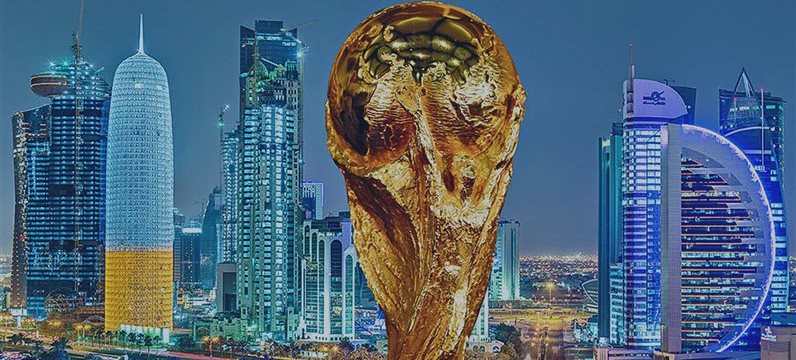
The economics of hosting a World Cup. What Qatar needs to consider for 2022
Available indicators of Brazil’s economic activity
during the 2014 FIFA World Cup are as poor as the performance of its
national team during the tournament. As a number of Brazilian host
cities shut down on the days when matches were played, economic activity
fell across the country.
QNB have released a report examining the Qatar 2022 World Cup within the context of this year’s World Cup.
Inventories soared, industrial production declined and capacity utilization fell to
near-record lows.
The football-equivalent of these statistics is losing 7-1 to Germany (the eventual winner) before millions of global viewers. Judging by these short-term indicators, one may conclude that the World Cup was an economic failure. A longer-term perspective, however, is needed to judge the economic advantages of hosting a major sporting event. This perspective could provide useful lessons for Qatar, where the 2022 World Cup will take place.
The long-term perspective starts years before the actual event itself. Hosting the World Cup requires major investments, not only in sporting facilities but also in general infrastructure such as roads, transportation network, hotels and services. These investments provide a major economic boost for many years with higher GDP growth. They also generate significant employment opportunities, which the host nation can fill either with their national population or by attracting a large wave of expatriates. Either way, the resulting increase in income provides a second-round boost to growth.
The infrastructure-building stage can help the economy grow faster
for a few years up to the tournament. It is important, however, to
transform this temporary economic boost into a permanent gain for the
economy, lasting well beyond the sporting event. It is crucial in this
respect to have a vision for the economy beyond the World Cup.
Three issues are supreme in this respect:
First, the World Cup provides a clear milestone for the implementation of investment projects. Typically, the majority of these projects are not directly linked to the World Cup but are needed by the host country irrespective of the event. However, the World Cup provides a focal point and clear deadline for these investment projects to be completed.
Second, hosting an event like the World Cup can transform the image of the country resulting in long-term benefits. The event can increase global awareness of the host country and make it an attractive tourist destination for years beyond the event. The full assessment of the economic benefits of hosting the World Cup, therefore, requires investigating its long-term legacy. One of the success stories is the 1992 Olympic Games where the host city, Barcelona, used the event to transform itself into a major European tourist destination. The number of tourists visiting Barcelona increased from 1.7 million in 1990 to 7.6 million in 2013. The Barcelona experience clearly shows that a major sporting event can be used as a catalyst for economic transformation.
Third, hosting a major global event involving large projects requires detailed cost-benefit analysis, careful planning and sequencing, appropriate execution and monitoring as well as efficient governance over the projects. This helps avoid inefficient investment spending and cost overruns.
Qatar can draw useful lessons from the experience of countries and cities which hosted major sporting events. Qatar’s economy has now entered a new diversification phase driven by large infrastructure spending and rapid population growth in preparation for the 2022 World Cup. This phase is just an interim milestone in the larger vision of establishing a knowledge-based economy as set out in the 2030 Qatar National Vision. In this sense, hosting the World Cup is a means to achieving a longer-term goal of modernizing the Qatari economy.
For a knowledge-based economy to flourish, the right physical and human capital are needed. The 2022 FIFA World Cup provides a useful focal point to complete the required infrastructure and move to the next growth phase. It also helps promote Qatar to the world and attract a growing number of skilled workers. In this respect, Qatar is likely to be an economic winner from the World Cup. Hopefully its national football team will fare equally well.


